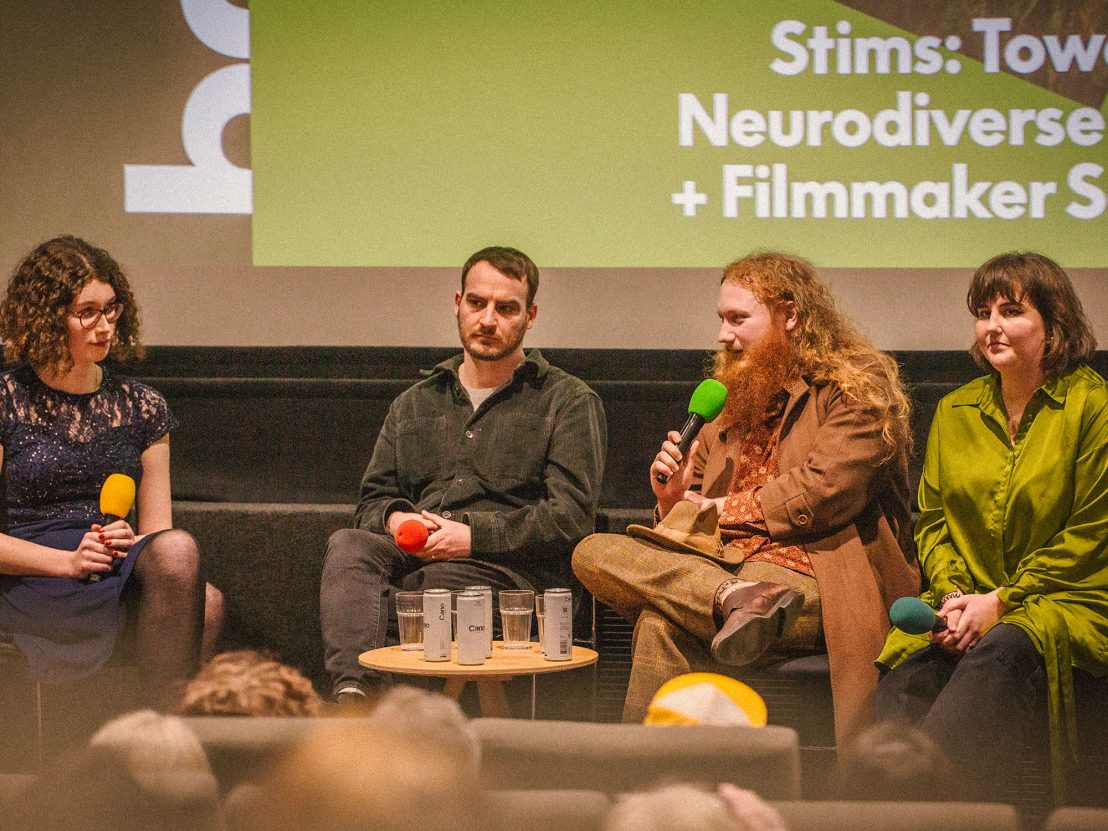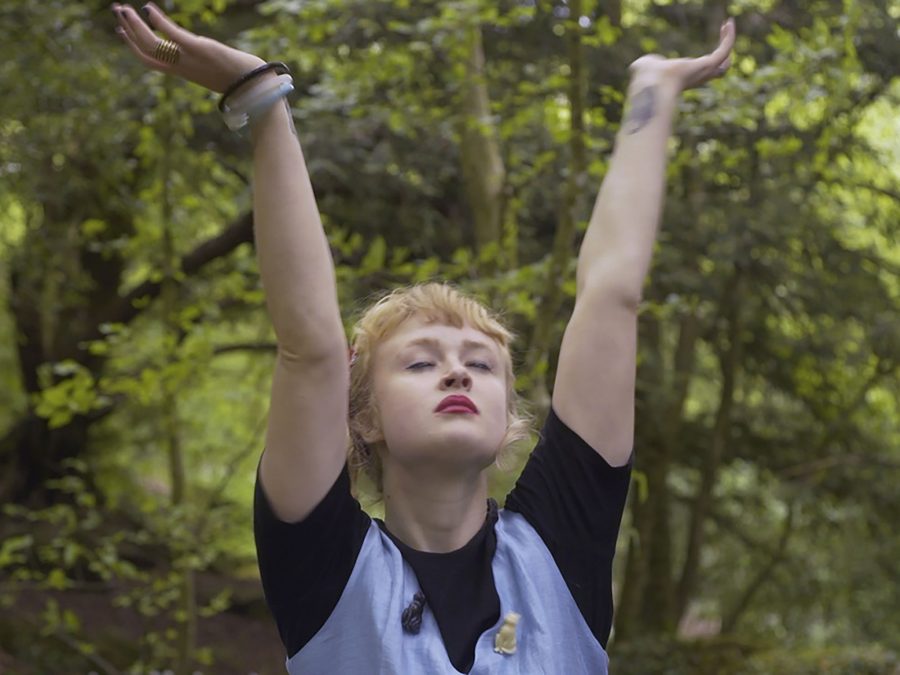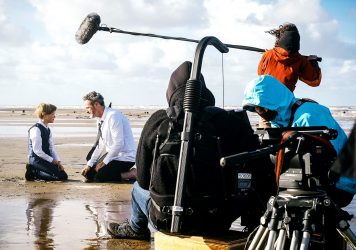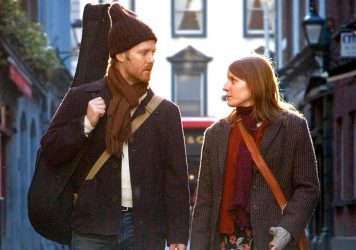
“I have never felt so comfortable in a cinema before,” said someone in the front row. I have hosted many post-film Q&As and discussions, but this was the first time I felt at a loss for words. The moment came at the end of a ‘relaxed screening’ event I programmed at the Barbican as part of their Emerging Film Curators series, following a lab of classes last year. Entitled ‘Stims: Towards a Neurodiverse Cinema’, the event showcased a series of short films from animated documentary to sci-fi and experimental, exclusively directed by neurodivergent filmmakers.
It felt like the apotheosis of work I have been doing for the past couple of years, working on the Autism Through Cinema project and podcast with Queen Mary University of London which frames cinema through an autistic lens, and hosting relaxed screenings at the BFI and The Garden Cinema. ‘Stims’ was the first event I had cobbled together from scratch, from ensuring the lighting and sound at the Barbican were at just the right level to acquiring the rights to screen the films and bringing several of the filmmakers to London for a panel discussion.
It turns out programming Stims wasn’t apotheosis but genesis – when that person took the mic to tell me how they had never felt welcome in cinema spaces, or felt like a valued part of an audience, I knew that this was something I have to pursue further. Yet making a personal mark on cinema exhibition is a big thing to take on, especially at lofty institutions like the Barbican. It can seem very overwhelming without knowing where to begin, especially for those of us to whom networking does not come naturally. I decided to talk to my fellow Emerging Curators to see what they made of the process, and the response they received from the programmes they lovingly prepared.
The first event in the series was curated by film journalist and programmer Cici Peng. Her screening was called ‘Visions from the Wake: Grief and its Afterlives in Global Cinema’, featuring short films exploring modes of mourning from filmmakers of the diaspora. “The event was really special because it was reflective of personal experiences of loss, in a structural context,” Cici tells me. “I had so many people tell me about their own relationship to grief after the screening, which touched me deeply.”
The films in Cici’s programme ranged from Mati Diop’s 2009 short film Atlantiques to Your Father was Born 100 Years Old, and So was the Nakba, a Google Maps view of Palestine directed by Razan AlSalah. “I think allowing these films to enter conversation with each other facilitates new modes of thinking about grief as a radical kind of empathy across borders for diasporic communities.” Peng said. I asked her what challenges she feels that young curators face. “Screen Daily reported the local box office for UK indie films has dropped by 49% in 2023 post-Covid. While this summer, the industry was marking Barbenheimer as the ‘return’ of cinema, the truth is that these huge releases overshadow independent cinema and independent programming and distribution.”

Inspired by Cici’s incisive reflections, I spoke to Issy Macleod who works as a programmer at Picturehouse to see what curation looks like to someone who has managed to turn it into a full-time job. “For freelancers, it becomes a game of who you know through networking,” Issy says. “It’s about building relationships with distributors and studios. Everyone is trying to keep the film industry alive, and even though it can feel difficult at times, distributors want their films to be screened.”
I wondered if Issy has much space to curate the films they are personally passionate about. “I love horror films from countries that don’t often make it to the UK and Westerns, but they don’t translate into box office very easily. So my aim is to slowly cultivate an interest in things I love, such as screening on 35mm which is really popular right now.” When it comes to advice for new curators, Issy says “Repertory programming is a really great way to learn how to book things and to identify the obstacles that you come up against. And reach out to your local cinema, they are often willing to work with new people.”
Screening repertory or archival films can circumvent the complications, including fees, of screening new releases. Teodora Kosanović’s Barbican programme is an evening of rarely screened shorts called ‘Unseen Avant-Gardes: Women Experimental Filmmakers in Yugoslavia, 1960-90’. I asked Teodora how she went about finding the films. “There was a lot of detective work involved, including contacting the families of the filmmakers, trying to find where these films could be and who the rights-holders were.” The desire to curate often comes from stumbling across something online or in an archive that hasn’t been screened before. But where to begin?
“As someone who is starting out in curation, I am happy to see that there is a growing interest in alternative voices and perspectives,” Teodora responds. “Especially looking at historical artworks in a different light and showcasing current works which reflect on our world in more radical and challenging ways.” There’s certainly a political or ideological edge to a lot of the programmes being produced. My own event aimed to demonstrate alternative ways of seeing which neurodivergent filmmakers bring to the film industry, whilst examining the access challenges we face both on set and in an audience watching in a cinema.
The challenge of going it alone can be assuaged by working as a collective, as demonstrated by the final event in the Emerging Curators series. Taking place on 24 March, ‘Changing With The Tides’ is an immersive screening exploring coastal communities and fishing industries over 70 years from 1950s Sivily to 2021 Scotland. It was programmed by three curators: Aryan Tauqueer Khawaja, Sophiya Sian, and Tony Yang. “Film is, after all, a collective experience,” Sophiya reflects. “Collaboration keeps film alive.”
Compared to how we all felt before the Lab, the mentorship from the Barbican’s programming team has given us confidence to develop further ideas and take them forward. As Issy said to me, it is a case of learning through experience, and their advice that curators with ideas should not be afraid to propose them to cinemas is worth repeating. I am already curating my next relaxed event at the Barbican, having learned so much from the first experience. The rewards of the work involved in curating screenings have been felt by all of these young programmers, and we need to help more new voices find their place.
Published 7 Mar 2024

By Beth Perkin
Collectives like the WFC are providing the tools to enable people around the world to create meaningful connections.

By Sam Judd
Laura Torenbeek, founder of Green Film Productions, explains how the industry can do its bit in tackling the climate crisis.

John Carney’s microbudget musical proves that talent and creativity can result in an extraordinary cinematic experience.